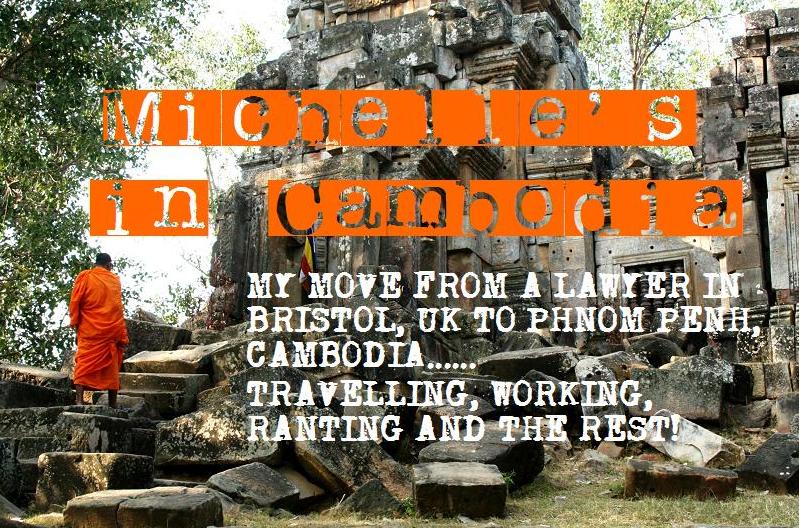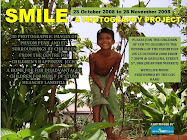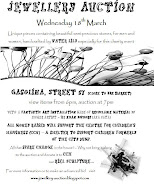 The ECCC just on the outskirts of Phnom Penh
The ECCC just on the outskirts of Phnom PenhAn extremely condensed low down on the Khmer Rouge period...
The time in which the Khmer Rouge ruled Cambodia is probably one of the most horrific times in modern history. Between 1975 and 1979 the KR regime imposed brutal methods in an attempt to create a “pure Khmer” society based on agricultural production. In order to reach its aims they employed extreme means - torture, arbitrary executions, imprisonment with no trial, forced labour, persecution (of the religious and the educated or indeed anyone who opposed them). No proper health care was in place, food was rationed to the extent that people often starved to death. The Khmer Rouge forced people out of the cities and into the country. Adults and children were forced to work in the fields. Phnom Penh was practically deserted after a mass evacuation in 1975. The KR sought to erase any traditional and foreign cultural influences and sought to seek to destroy the Cambodian culture by “re-educating” people.
The KR’s mass killings resulted in huge mass graves (est, 200,000 graves) across the country. At least 189 torture/detention centres existed. The brutal regime and the execution of so many people make it impossible to estimate the scale of the killings but it is estimated that 20% of the population (1.7 million people) were killed. Some estimate the figures as high as 33%. This high figure is shocking to the core but not surprising when you consider what actions would make the Khmer Rouge kill a Cambodian – For instance, something as simple as eating an insect you have taken from the ground and eating it because you are starving to death or going to the toilet without permission from a KR official could have resulted in your torture or execution.
I cannot begin to detail the atrocities committed by the KR here or give the detail of the crimes committed giving the coverage those who suffered deserve. A good starting point for the interested (and short on time) is the famous movie “The Killing Fields”. There are numerous first hand books covering the situations faced by individuals who miraculously survived. I would recommend “Survival in the Killing Fields” (Haing Ngor) or either of the books by Loung Ung.
In the meantime instant condensed information can be found at http://news.bbc.co.uk/2/hi/asia-pacific/7002629.stm
The punishment of the Khmer Rouge
It was the Vietnamese invasion into Cambodia which eventually toppled the Khmer Rouge. Since the fall of the KR (and since the UN and the governments of the world stopped recognising the KR as the official government of Cambodia in favour of the communist Vietnamese) numerous bodies have been calling for the perpetrators to be brought to justice. It is only since 1990 that serious thought has been given to the matter. However, in 1979 Cambodia did itself try and bring “justice” by holding its own tribunal (People’s Revolutionary Tribunal) - However, the verdict of this tribunal is not considered to be just by the International Community as the trial only lasted 5 days and was given in absentia of those accused with no real hearing of the evidence.
The problems with establishing the ECCC are numerous - One problem is that so many people were perpetrators carrying out the orders of the KR. Former torturers drive moto taxis, work in the market, work in the fields and are in the present government (although they defected from the KR)...They are indistinguishable from the other Cambodians who were the victims.
Also decades have passed since the atrocities were committed. A further problem is that if the KR leaders who were convicted by the Cambodian tribunal joined the government, then government pardoned them – leaving a problem with a) the fact that they can claim they have already been convicted (double jeopardy rule) combined with the fact that b) they have been pardoned!
Here is a very quick legal overview of the aspects to be considered by the ECCC.
- The tribunal will only hear accounts of crimes committed between 1975 and 1979. The accused may therefore use the defence that his/her acts were committed outside of this time frame.
- The ECCC will try the crimes of Senior leaders alone (although many of the most infamous leaders have died - Pol Pot being an obvious example). The court will have the responsibility to decide exactly who was a 'senior leader' and who was 'most responsible' for the crimes committed by the Khmer Rouge.
- Defendants of the ECCC may be held liable for either direct or superior responsibility. If the defendant planned the act/ordered it etc then he/she may be liable. This is important because many of the Senior leaders did not actually kill/torture people themselves but ordered other people to do it (who would have been almost certainly killed had they not done as asked)
- Only certain crimes may be judged by the Court – It will focus on the most serious offences under international and Cambodian law (more on this below)
- The law must be applied as it was in 1975-1979. Modern interpretations should not be given. So, the crimes (such as genocide and crimes against humanity) and the principles (such as direct or superior responsibility) must be interpreted as the law stood at this time.
The crimes to be tried
The ECCC will hear evidence on the charges of any of the following crimes:
Genocide
The elements of genocide are:(a) an individual commits a prohibited act; The acts are: killing/causing serious harm/inflicting conditions to bring about the groups destruction/measures to prevent birth/forcibly transferring children.
(b) with an intent to destroy; The accused must be shown to have committed one of the acts above against at least one of the protected groups below with an intention to destroy that group in whole or part.
(c) in whole or part a national, ethical, racial or religious group; the victims must be a member of one of these groups.(d) Some argue that the crime also has a 4th element – That the prohibited act was “part of a manifest pattern of similar conduct or that it was the type of conduct that could bring about the destruction of the group in whole or in part”. This is not however decided under International Law and may be a new area of law the Tribunal rules upon.
Crimes against humanity
In general crimes against humanity include grave abuses committed as part of a widespread or systematic attack against civilians on racial, political, religious, national or ethnic grounds.
(a) A prohibited act must be committed –murder/extermination/enslavement/deportataion/ imprisonment/torture/rape/persecution/or “other inhumane acts”;(b) The act must be “widespread or systematic”. Some argue that in the 1970s the acts must be “widespread and systematic”. It is more widely thought however, that if the attacks are part of an organised policy or series of attacks then generally this is enough for this element of the crime;
(c) the attacks must be against civilians in the protected groupings: racial, political, religious, national or ethnic. Other tribunals (in Yugoslavia and Rwanda) have not required discriminatory intent towards the group. Whether the ECCC also takes this approach remains to be seen;(d) the mental element – “knowing that the attacks are widespread and systematic”. The individuals needed to know that what they were doing was part of a broader attack.
“War crimes” – Beaches of the Geneva Convention
The 4 1949 Geneva Conventions – These protect certain groups such as civilians, prisoners and soldiers in times of war (by the 1970s it was established that this meant international armed conflict). This will limit the prosecution as the KR atrocities were domestic abuses. However, article 3 of the Conventions can apply outside international armed conflict:a) Article 3 protects the most fundamental of rights such as murder, torture and the right to a fair trial. The context of these crimes, to secure a conviction, however must be in the “nexus of an armed conflict”. It is not clear whether the ECCC judges will find that there was a sustained conflict in Cambodia between 1975 and 1979 but it is more likely to find that there was a conflict between 1977 and 1978 when the border conflict with Vietnam escalated.
b) The harm must have been inflicted willingly.There is a possibility of the charge of destruction of cultural property. However, this treaty only applies to sovereign states not individuals – it is not a crime but a measure to allow states to get finaincial compensation from other states - Therefore the ECCC may be reluctant to stretch the law so that it applies to individuals as a crime. However, such crime may exist as a customary law.
This poses the same problem as above – It is a state based remedy not a crime. There is a separate treaty which allows for this to be a crime but Cambodia is not a party to this treaty and it is not mentioned in the ECCC law. Again, customary law may be used by the judges to overcome this hurdle
Domestic crimes (such as homicide, torture, religious persecution)
The 1956 Cambodia Penal Code may also be used to bring charges against the accused (the crimes being murder, torture and religious persecution). However, Cambodian jurisprudence is not well developed and so what makes up the elements of these crimes in the 1970s is not at all clear. The ECCC judges will therefore have considerable discretion. This is almost a safety net for the tribunal. Being convicted of hundreds of murders does not have the same stigma as a conviction for genocide but would still lead to a considerable prison sentence.
Finally - The purpose of the law lecture!
This week Ieng Sary (former Khmer Rouge foreign minister) has been in front of the ECCC and hitting the Cambodian (and international headlines). The ECCC is hearing matters prior to his trial kicking off properly –Preliminary matters. On Monday Sary asked for the Tribunal to rise early because he felt dizzy and tired. [Ummm – I’d like to say that must have been just like how the millions of people he put to work in the fields on no food/water in the baking head for 4 years felt before they were killed or died of disease/malnutrition but that would be politically incorrect.]At present the ECCC is hearing his bail application. His lawyers claim he should be released due to poor health and that he should be placed under house arrest instead. The concern is that he will not otherwise be fit to stand trial in approximately a year’s time (he is 82 years old). The ECCC is also expected to hear arguments as to whether he should be facing trial at all.
It is expected that his lawyers will argue whether the pardon he was granted (see above) by former king Norodom Sihanouk makes it impossible for the ECCC to charge him. The interesting thing is that he is now charged with war crimes and crimes against humanity. He has previously been convicted by the People’s Revolutionary Tribunal for Genocide. The pardon that followed was therefore for the Genocide conviction – Genocide is not the same crime as those present charges of crimes and crimes against humanity so how double jeopardy or the pardon can apply seems to be a bit of a non-argument... It’s simply not the same crime.Sary's wife Ieng Thirith, Khieu Samphan (former head of state), Nuon Chea (chief ideologist) and Kaing Guek Eav (former Toul Sleng torture centre director and also known as Duch) are the other KR leaders currently in detention awaiting trial. Duch is expected to have his trial begin in September.
I promise other posts on the subject will be shorter... I was having law withdrawal symptoms!





















No comments:
Post a Comment